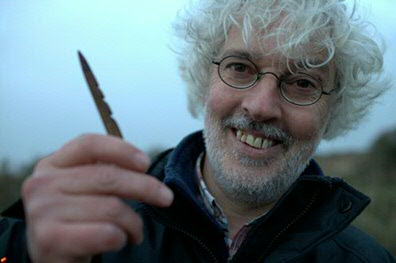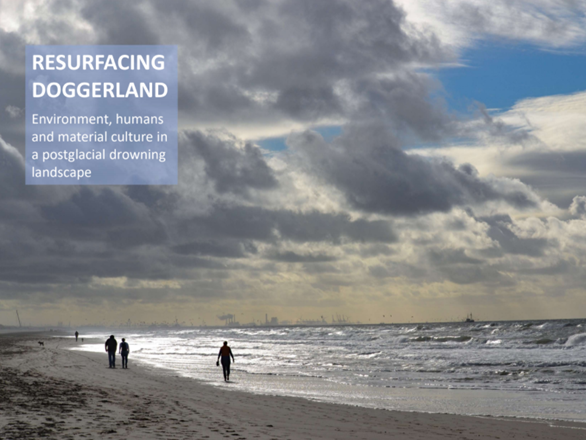Resurfacing Doggerland. Environment, humans and material culture in a postglacial drowning landscape

Under the programme, "Future directions in Dutch archaeological research", NWO has awarded a substantial subsidy to the project Resurfacing Doggerland. Environment, humans and material culture in a postglacial drowning landscape. The aim of this programme, in which four proposals have been granted subsidies, is to stimulate research, in which (innovative) methods and techniques are used for questions that are central to archaeology, and that contributes to the development of a knowledge chain-wide sustainable research infrastructure. Knowledge dissemination towards a wider audience is an important part of the programme. The successful application was submitted by dr. Hans Peeters of the Groningen Institute of Archaeology at the University of Groningen.
About the project
With a budget of 675 thousand euros, a broadly composed consortium will conduct research into the effects of rising sea levels on hunter-gatherers who inhabited the southern North Sea region between 20,000 and 6000 years ago, an area now often referred to as 'Doggerland'. Thousands of archaeological and paleontological finds picked up from Dutch beaches and fished out of the North Sea contain a wealth of information about this vanished, once-inhabited landscape. Using a wide range of research methods, data will be collected on all kinds of aspects of the inhabitants of the former Doggerland. For example, ancient DNA from human bones informs us about genetic relationships, isotopes provide clues about their diet, and the enormous amount of tools, waste and animal bones provide insights into cultural developments and the environment in which people were active. In combination with a large number of radiocarbon dates, these data will help us to develop new knowledge about the influence of rising sea levels and the associated change in the environment on socio-cultural life, a problem that we know all too well today.
This research is possible due to the efforts of a large number of collectors, who spend their time on the beaches of, for instance, the ‘Maasvlakte’ and the ‘Zandmotor’. Therefore, the project devotes a great deal of attention to public outreach, in collaboration with the National Museum of Antiquities in Leiden, where an exhibition and extensive programme of activities about Doggerland is currently being prepared. Collectors are also involved in the project. In addition, there will also be attention for the development of working methods that can be applied in future interventions in the North Sea, such as large-scale sand extraction and the construction of wind energy parks.
For more information, please contact project leader dr. Hans Peeters (j.h.m.peeters rug.nl).

Partners
University of Groningen, Groningen Institute of Archaeology; University of Groningen, Centre of Isotope Research; Leiden University Medical Centre, Human Genetics; Leiden University, Faculty of Archaeology; Vrije Universiteit, Faculty of Science, Geology and Geochemistry; Archaeobone; De Steekproef; Natural History Museum Rotterdam; ADC Archeoprojecten; National Museum of Antiquities; Municipality of Rotterdam, Archaeology Department; Cultural Heritage Agency (Dr Bjørn Smit); Rijkswaterstaat, Sea and Delta.
More news
-
14 February 2026
Tumor gone, but where are the words?
-
19 January 2026
Digitization can leave disadvantaged citizens in the lurch
